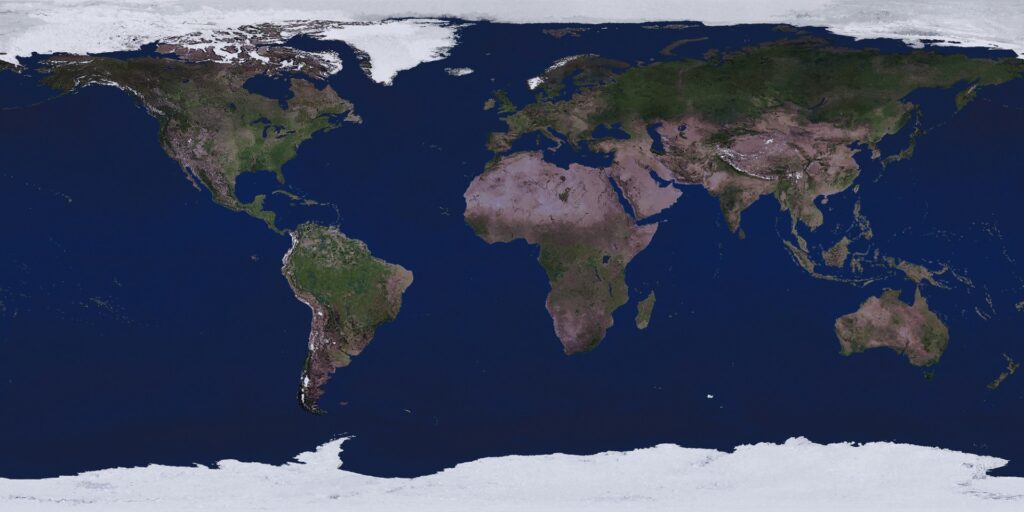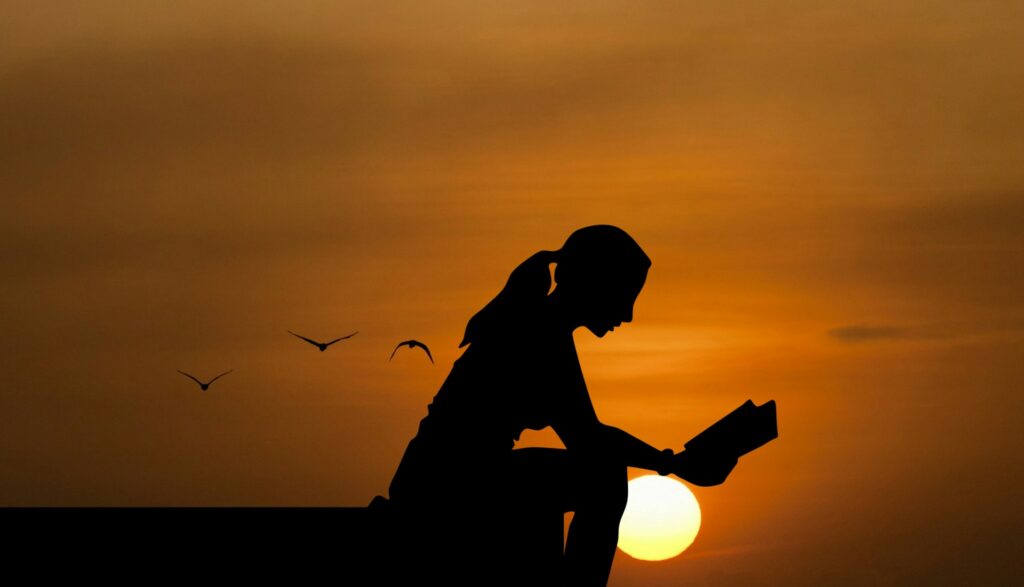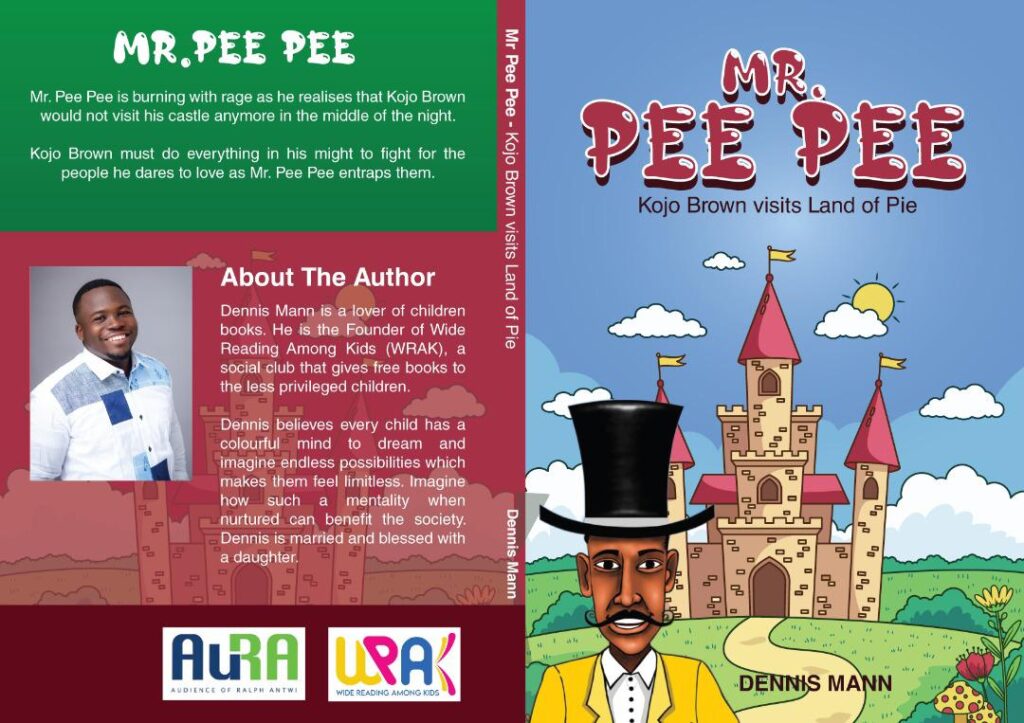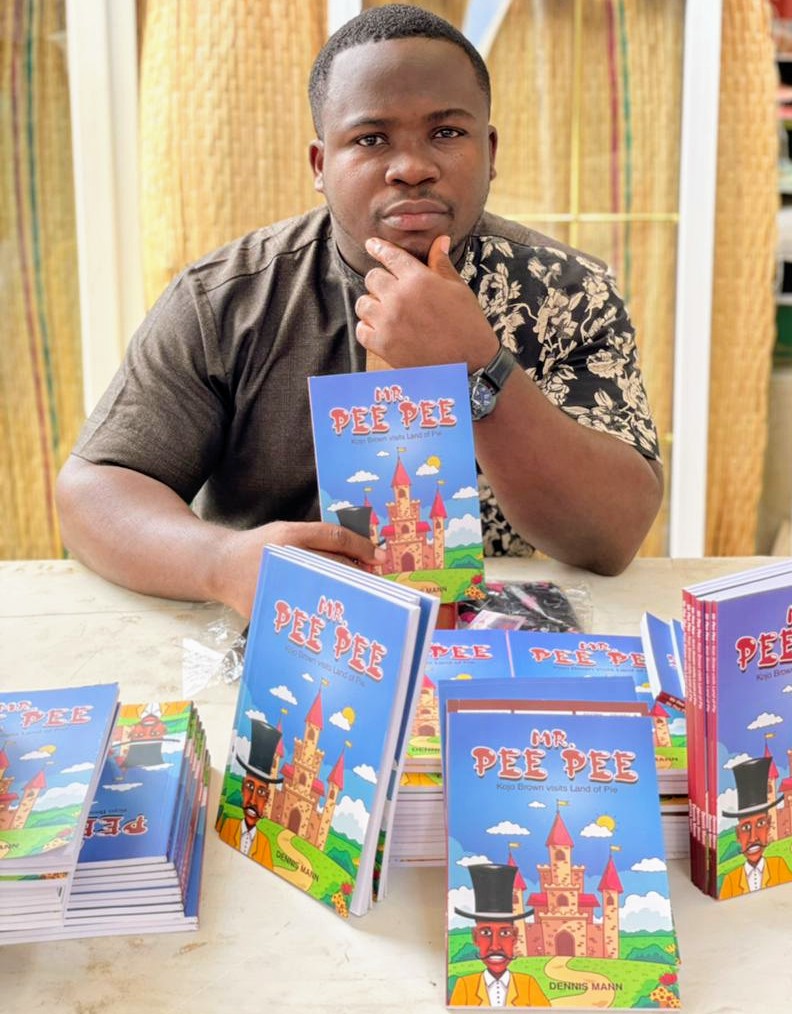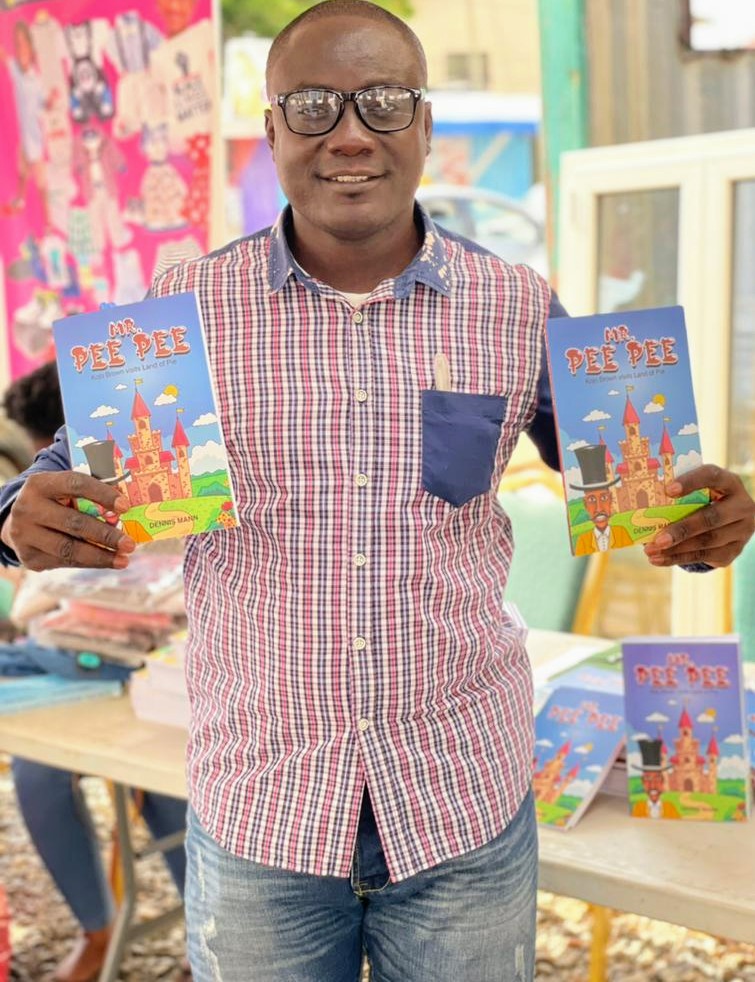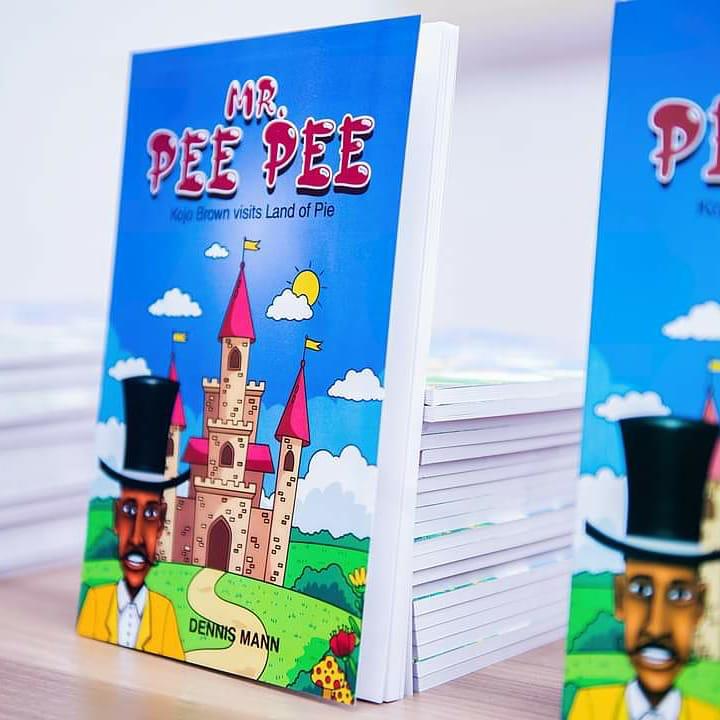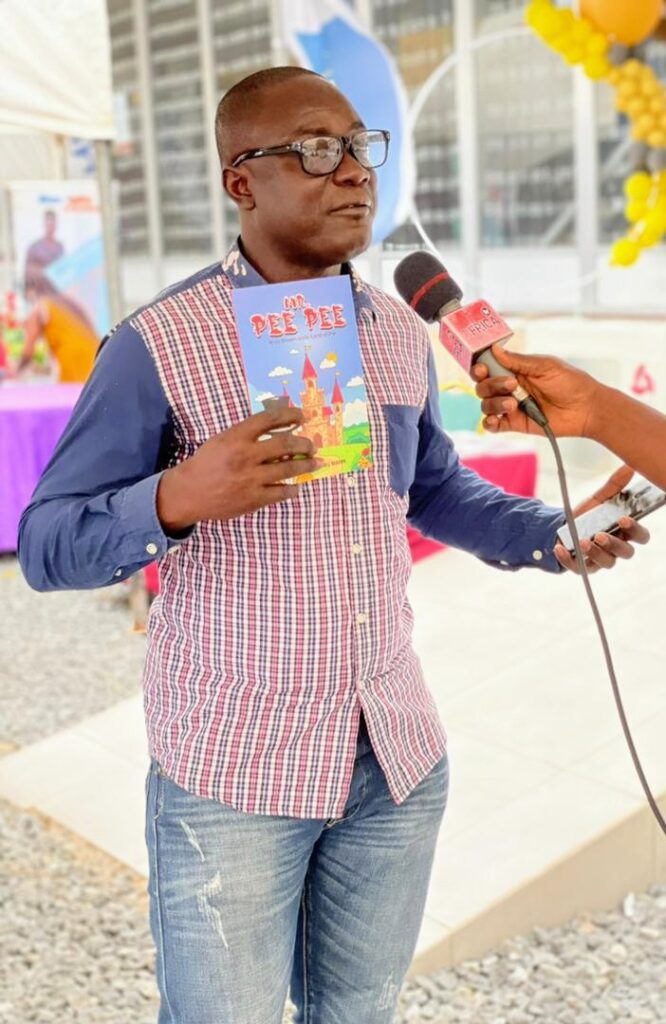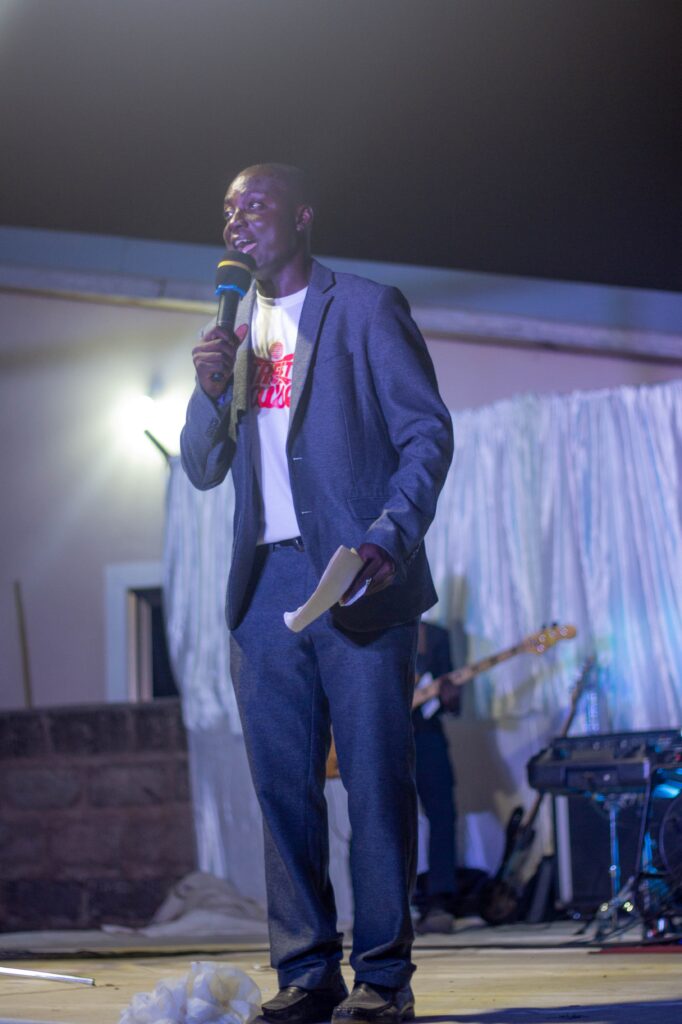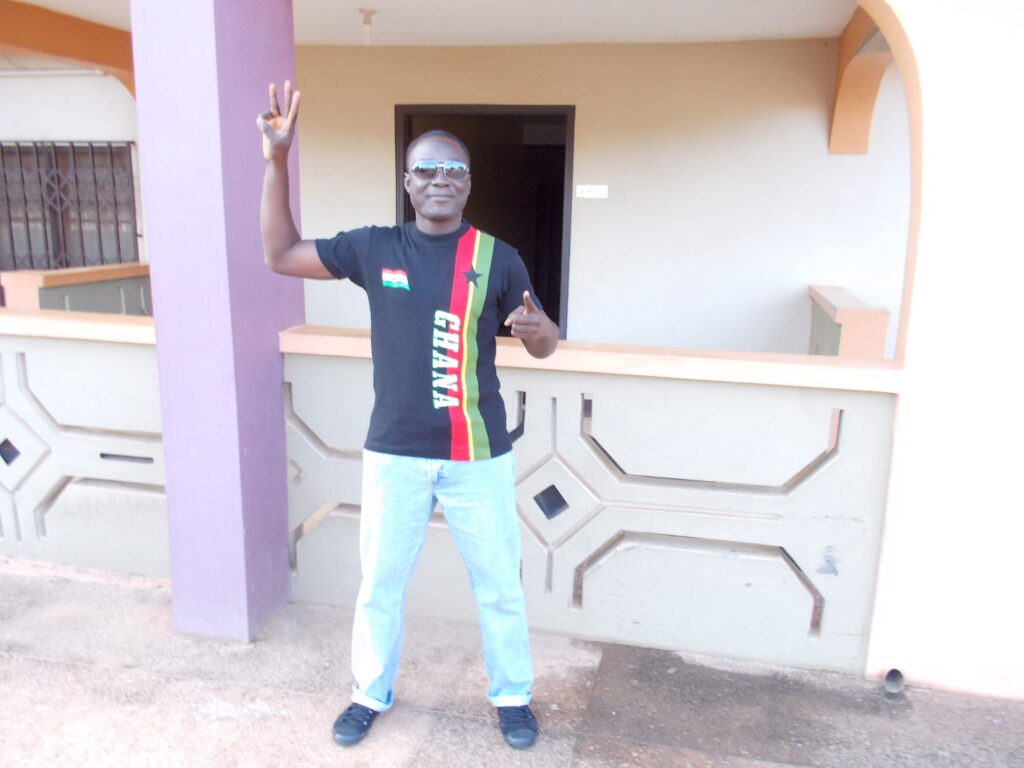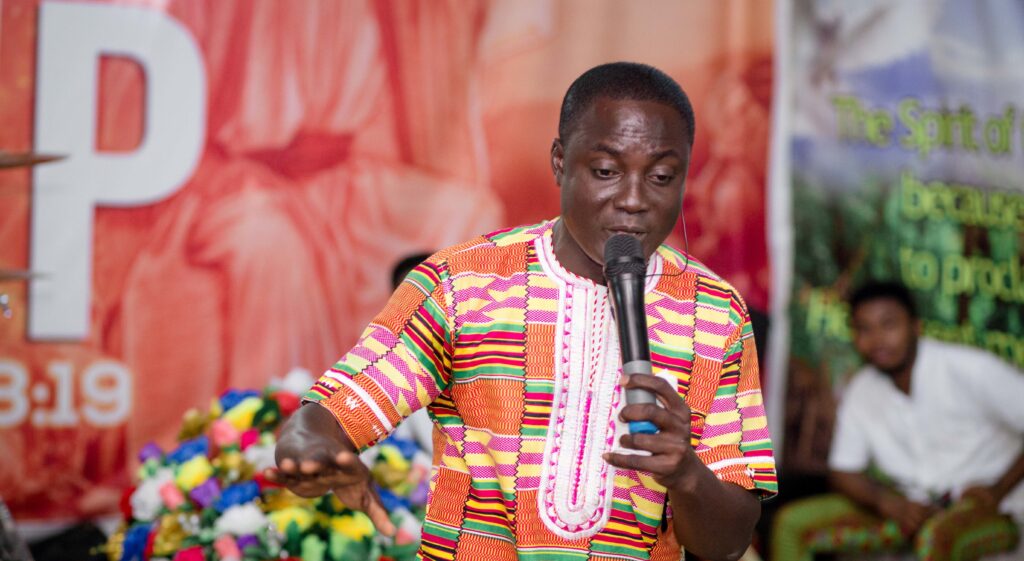The Ghost Trolley
A Tale for Children and Their Adults
By Christopher Bernard
Chapter 3. A Girl in a Red Jacket Under a Green Sky
As the trolley clanked noisily down the tracks, it suddenly emerged from what looked like a tunnel, but no – it was an old covered bridge, of the kind seen in the woods near Halloway, and that Petey always thought looked “romantic,” like his mother said, to a guffaw from his father – even eerie and haunted, though in a way that wasn’t scary. He had always liked the bridges, with their rumbling, uneven planks as the family car slowed down to drive across them with long shadowy interiors dotted with sunlight peering through cracks and the smell of damp, decaying wood. But this one wasn’t rumbling at all. Nor was there any sign of sunlight.
For the sun was only just now rising through the trees ahead of the trolley.
But Petey noticed something strange. It made his heart skip a beat. The shadows on the other side of the bridge looked all wrong: rather than falling from right to left across the trolley rails, which they should be doing, the shadows now fell from left to right. The trolley had been running north, unless they had made a weird turn when he was asleep. But that was impossible; they would have been back in Halloway by now if that had happened, not in the forest at all. If they were still in the forest, they had to be north of the town. And they were definitely in the forest.
At that moment the trolley moved across a break in the woods – a meadow cut through by a racing stream – before moving back into the forest darkness.
And above the meadow was the sun. And it was blinding him.
Petey had to throw his hand over his eyes. This was crazy – not that he had to cover his eyes against the sun, but because he shouldn’t have had to do that in the first place: the sun shouldn’t have been on that side of the trolley It was in the wrong position. It was rising in the west, not the east. Petey pushed close to the window and looked up, past the blazing patch where the sun silently roared.
The sun was rising into a sky without a single cloud across its vast and shining expanse.
And the sky was pale green.
And not only that: it wasn’t winter anymore.
Petey pinched himself. Yep, he was awake all right, unless you could pinch yourself in a dream and still stay asleep.
There was no ice or snow anywhere, not on the ground, not in the trees, not in the crevices of the trolley’s windows. The banks along the trolley tracks were covered with a thick blanket of ferns and brush and wild flowers – a blossoming tapestry with a complicated blend of fragrances so strong and lovely he pressed his nose against the window crack so he could smell it better. It looked like, and smelled like, a drowsy, dewy morning in late spring. He pushed the window open as wide as he could.
Not only was the sky green, but some of the vegetation – the long grasses, for example, and some of the weeds – was blue. He could see clover (also blue) on the banks of the trolley cutting, and, on a sudden zephyr, several blew through the open window into the trolley. He picked one up from the seat next to him; it was a four-leaf clover! At first he felt “hella lucky,” as his dad would say, then he picked up two others that had blown in beside it: they were all four-leaf clovers! For some reason, this made him shudder.
He peered more closely at the forest the trolley was passing through. It also was different: the trees had pale gray bark, as he was used to seeing, but the boughs didn’t start till high up, leaving the lower trunks smooth and bare, and the roots started several feet above the ground, forming little, cozy cage-like shelters at the base of each tree. And the leaves looked strange: each tree had leaves with many different shapes, some of them like the wings of birds, others like seashells, others like palm fronds or banana tree leaves, some like oak or maple or sycamore leaves – but they were all on the same tree, which was definitely not how he knew trees grew back home.
Back home! But if this wasn’t “back home,” where in McGillicuddy’s bean patch (another favorite “dad phrase”) was he?
He heard what he thought was birdsong, as it was coming from the trees, but it wasn’t like anything he’d ever heard: there were long sharp hisses, then chattering and ratchety crackles, followed by a little, spiky shrieks. And then he saw the little furry animals that were making the noises; they were flying through the trees, though they were definitely not birds!
They sailed through the treetops like flying squirrels, though these looked more like chipmunks, one of them like a possum, another like a rat, another like a bright red fox; they spread their arms, the skin spreading out from their torsos like little sails or wings as they flew from bough to bough. There was even a monkey or two hanging out in the upper branches, but quite tall and with less fur, and they stopped and watched the trolley intently and seemed to notice Petey and watch him with an especially alert look on their wizened faces. The forest here looked like a jungle!
Petey tried to crouch out of sight when he saw the monkeys watching him, though he was immediately mad at himself: so what if the monkeys saw him, let ’em look! He had nothing to fear from them – did he?
Other mysterious eyes were watching him from the dense foliage of the trees: large round eyes in small round heads, bracketed by curiously stirring wings. One pair of wings took off heavily to follow him as he rode past, followed by another, then another, and another . . .
Not long afterward, the trolley came to the edge of the forest. At first the brightness of the sun dazzled the boy’s vision and Petey held his hand above his eyes like a hat brim until he could focus again. The first thing he saw clearly was something lying on the ground near the tracks just ahead of the trolley.
It looked like the body of a man. He seemed to be sleeping. He lay with his face in the grass, with one arm stretched forward as though he were trying to hold on to something that was no longer there. Maybe it was one of the homeless people Petey sometimes saw in Halloway, usually from one of the big cities not far away – Portland or Burlington. Petey felt a spasm of pity for the man as his body passed beneath him and to the rear.
The boy, his eyes fully adjusted to the stark morning light, suddenly looked at the landscape surrounding him.
It was partly hidden by what looked like brown fog, that blew away here and there to reveal patches of blackened, in some cases still burning houses, barns, sheds, stables, granaries, silos, whole farmsteads, charred woods, fields pocked with craters like holes punched out by a crazed giant; and villages were burning in the distance, and the waves of smoke moved across the land like ghosts.
The boy was at first too astonished to be frightened. It looked too awful to be real, and he felt at first a certain detachment, as though none of this was happening to him; it was like being thrust without warning someone else’s nightmare.
A solitary bird was winging slowly above a dead tree. But it was flying upside down.
Then the boy saw something that made him shiver: the driver’s seat had changed – before, it had been on the left-hand side of the trolley, as it always was; but now it was on the right. He still couldn’t see any sign of the driver: just the tall back of his seat, and his coat, now on a hook on the other side of the driver’s cabin, swinging back and forth. The mirror above the driver’s head, in which he could usually see the driver’s face, was blank.
The bell clanged three times, and the trolley moved onward. Petey squeezed his face against the window and stared as they moved across the vast desolation. What had happened? Why had he heard nothing about it? Something like this would surely have been broadcast on the news – wouldn’t it? What was this? Where was he?
Then he saw her. It was a little girl dressed in a red coat, though the coat was covered with black streaks like stains; she was standing in a field next to the trolley tracks, watching the trolley come toward her. She started waving frantically.
The trolley stopped and she got in, mechanically put a coin into the coin box, and walked back with head down toward Petey as the trolley moved forward. Petey watched her intently as she sat in the seat across from him, without apparently noticing him.
She was a small girl, with frizzy hair and honey-brown eyes, from what he could see; her skin was smooth and brown, like cocoa; like the skin of Sambene, the little African American girl in the other fourth grade class, who Petey had a crush on.
The girl heaved a sigh. Her cheeks were stained with tears and ashes.
Petey wasn’t sure what to do. His parents had always warned him against talking to strangers. But, under the circumstances, wouldn’t it have been terribly rude to say nothing at all?
“Hel-lo,” he said shyly, his voice breaking between the syllables.
“Oh, hallo!” the girl said in a small, startled voice, seeming to notice him for the first time. She turned toward him; yes, her eyes were as brown as honey.
Petey’s heart skipped a beat, for the second time that morning.
“What happened out there?” he asked, after hesitating for almost a full minute.
The girl stared at him with large, sad eyes that hardly seemed to see him. They shone with tears.
“They come for us!” she said, in a curious accent Petey had never heard before.
“Who came for you?”
“The Korgan of Ramora! It part of the big battle last night. You must see that!” And bursting forth from having been pent up so long, her words came tumbling out. “They come in middle of night and take me father and me mother and me sister and me brother, and they take me if I not hid under bush at back of our garden, and they set our house on fire, and I have to wait all night, watch our house burn down, and I ken’t believe it so I look at it when it all over, and I slip and fall in the ash, then I run away as sun rise till I see the yellow trolley that cross the middle of Otherwise when there be a blue moon, like there be last night, and here I am . . . ”
Petey tried to take all this in, without quite succeeding.
“Why did they want to take you?”
“It part of the war . . .” The girl looked at Petey closely for the first time. “Don’t you know? Not you from here?”
Petey shrugged uncomfortably.
“No, this is the first time I’ve ever been here. I got in the trolley to go to school and I fell asleep and I missed my stop and I waited for the trolley to take me back but it took me here instead.”
“Oh,” said the young girl, still sadly. “That must mean you from Howtiz.”
Petey, who had never heard of “Howtiz,” looked doubtful, but felt it would be impolite to contradict someone who looked so upset.
“This be Otherwise,” said the girl, wiping the tears from her eyes (telling her story seemed to have relieved her a little). “You can see the different destination on front of trolley. When it go back from here it say ‘2 Howtiz.’ In Otherwise, things be different from Howtiz, completely different, but not all at once, which why it called Otherwise. Anyway that what me deddy tell me. I only know Otherwise, I never be to Howtiz. I always want to go there, because Otherwise not exist without Howtiz—at least that what me deddy tell me some of our philosopher say, though other philosopher claim otherwise. Me deddy say that so like them. They never make up their mind about anything.”
Petey blinked at that. Philosophers claimed otherwise about Otherwise? The thought gave him a little brain spasm.
“Anyway, I always want to see for meself, by going there on yellow trolley. But me parents never let me go. And a blue moon be rare anyway.” She sighed again. Speaking clearly made her feel calmer, so she continued. “We live, I guess not anymore, in Forest of Paal. Me deddy a teacher. Me mommy a doctor, and there be three children. We live peaceful before the war and the Korgan from Kingdom of Ramora across Mountain of Sleeping Noor invade we. Everyone force to join one side or other, either Korgan or Paona, who be largest group who live on the plain. It easy for we to choose, cause Paonas gentle and honest, but very poor, and there not be many of them, and Korgan, though they be rich and powerful and strong, and there be many of them, not content with what they have but think they must have ever’thing. They probably not even be content then!” she sighed
The girl paused, as if uncertain whether to tell the boy from Howtiz any more.
“You couldn’t just stay out of the fight between them?”
“No,” said the girl positively. “You do that, everyone turn on you. ‘Whoever not enemy of me enemy, be enemy of me.’” She said the last in a detached singsong voice, as though reciting a school lesson she had become profoundly and bitterly skeptical of.
Petey looked uncertainly at the girl. He was thinking about what he saw altogether too often on the news back home. Back home! Sigh . . .
“Are you sure we are in Otherwise?”
“Yes, of course! Why you ask such a question!”
“Because what you say sounds an awful lot like where I come from.”
“The world Korgan and Paona fight for not just world of Otherwise,” she continued, ignoring Petey’s remark, “it be world of Howtiz, too. Whoever win will take over Howtiz as well. The two world come together then into one world – for better or worse. At least so some of our philosopher say . . .”
“When they aren’t saying otherwise?”
“Exactly right!” She gave a little laugh. “I doubt anyone know, really. But that what me parents tell me.”
The boy felt rather solemn after he heard all of this.
The girl looked straight at the boy.
“But,” she said, leaning in toward him; seeming finally to make up her mind to tell him everything, “there be another reason Korgan invade.”
She stared hard at him with her honey-brown eyes.
“They invade to find Spell.”
Petey gave her a blank look.
“So, what is ‘Spell’?”
“Spell be secret of Otherwise. Or one secret,” she added conscientiously.
The two children looked gravely at each other as the trolley moved quietly onward. The sun was just behind the young girl’s hair, making it glow.
“Me deddy tell me the story. Spell discovered many generation ago by the Paona. At first it make them happy, because it give them power over whole world, me deddy tell me. But it soon come clear such power can also destroy world, and so it too dangerous to keep. It too much for Paona to know. And so they bury it in a distant, hidden place and try to forget it. But my father say fact they once have that power can never be forgotten, never utterly entirely. Every so often someone break down and try, in middle of night, because it against law and every commandment of our religion, to dig up Spell, but no one ever able to find out where it buried.
“Then one day me deddy, who also like to invent things – mostly toys for childers, but sometime big important things for adults – thought he had worked out – completely by accident, he say, but I think he just modest – what Spell be. Last night he tell me mommy. And I overhear them.” The girl’s face looked almost frightened. “I not sure I hear everything, but I remember everything he say.”
“But what was this ‘spell’ all about?” asked Petey impatiently. “Why was it so dangerous somebody would start a war because of it?”
“First of all, you must know Otherwise only exist because different things happen in all kind of different ways, but by chance,” said the girl. “Anyway, that be what me deddy say though I don’t really understand it. What Spell do be this: it make possible to go back into past and change into future – What Be. Even more: What Is. That why it be so powerful. It possible for you – for anybody – to make another Otherwise, and then another, and then another . . .”
Petey stared at her.
“If you have Spell, you have power over all of time. And therefore over all of world. So.”
And the possibilities this suggested to him swirled through Petey’s mind in a flash of intoxicating wonder.
Chapter 4. The Exploding Trolley
“What be your name?” the girl asked politely.
“Petey,” said Petey, coming back from his momentary trance.
“Me name be Sharlotta.”
For some reason Petey blushed, and the girl lapsed into silence. She seemed a good deal less upset now.
“Our home so beautiful,” the girl said quietly as she stared across the ruined landscape outside the trolley windows. “It not big, like a gookor, it be more like a gimpy, but it be roomy enough, and cozy. We live there long as I remember. Me mommy say I born there, but I think that can’t be so. After all, my little sister born in a gorpal in town.” She was silent for a moment, then continued dreamily, “We have two kerdles, and we have a bumble who think he a kerdle, and we have a goffney out back where we grow cispies and prunables and gerk trees that unleave in the fall and flourish all winter until the kerries turn many colors in sprang, and we have a wintry house where we eat when it not rain, above a custer with a pearly so fresh and cold you can kneel at the bank and cup your hands and drink it whenever you thirsty, it be most delicious beverage in the world, me deddy say.” She stopped, as though the dream had abruptly ended, and her face again crumpled. “Now it all gone . . .”
Petey had hardly understood a thing that Sharlotta had said, but her words sounded so heartfelt he too felt deeply sorry that it was gone, and he sighed.
It was then he heard an angry series of shouts from in front of the trolley, which came to an abrupt halt. The two youngsters were thrown from their seats to the trolley floor.
Petey scrambled up and peered around his seat toward the invisible driver. The jacket had fallen from the hook.
Sharlotta stayed down behind the seat in front of her.
“It be them!” she whispered in a terrified voice.
The trolley’s back door, which was right in front of them, had been thrown open when the trolley halted. Petey took the girl’s hand and, without a word, they scurried down to an embankment thick with tall ferns and other brush, and hunkered down among them out of sight.
Two large males, dressed like soldiers from a bygone era and holding weapons that looked to Petey like a weird blend of crossbow and machine gun, their skin as pale as milk but looking like they hadn’t washed in months, walked up to the trolley’s front door, looked inside and waited.
The driver didn’t emerge. Petey, who had never gotten a good look at the driver, was curious to see more, but Sharlotta tugged his sleeve to keep down.
Petey could hear the Korgans talking in the distance, but could neither see them nor make out what they were saying.
“Maybe we should get away from the trolley,” he whispered, suddenly feeling queasy.
They crept through the brush quietly up the bank to several curious-looking trees at the top – their canopies of leaves were broad at the bottom and narrow above, twisting up in a shape like a flame. From there Petey could see clearly into the driver’s cabin: there was no one in the driver’s seat! His father had said that driverless trolleys and busses were only a matter of time – but he had never seen one before.
In front of the trolley several Korgans were conferring. Then one of them walked to the trolley’s open front door and threw something inside. The Korgans then ran hell bent for leather for cover behind a stand of tree fifty feet away.
“Hold your ears!” Petey had just enough to say when there was a flash, a rush of air and a boom as the trolley exploded.
Dust and gravel and shattered fragments of metal and glass, shreds of plastic, rubber, straps, handles, fixtures, stuffing from the seats, bits of wire, lights, piping – all rained down as the two children sat with their hands over their ears. Papers and fragments from Petey’s backpack and the things inside it scattered in the air, which was suffused with the smell of burnt gasoline and oil.
They sat paralyzed as the noise from the explosion echoed away in the distance.
How will I get home now! Petey thought. His backpack and notebooks and homework and lunchbox, and – gee whillickers! – his new smartphone, his very first one, which sure would have been useful to have right now – were all gone in a blast of smoke and noise that made his ears ring.
After a moment, Sharlotta brushed away a large piece of plastic seating that had fallen lightly on top of her, and whispered to Petey, “If I follow them, they lead me to me family.”
Petey didn’t need to ask who she meant by “them.”
“Aren’t you scared they’ll catch you?”
“Of course I be. But how else I find them?”
The girl raised herself a little.
“Are you going by yourself?” Petey asked.
“Yes. Unless you want come with me.”
“You know, it’s too bad you’re wearing a red jacket,” he said, after a moment, still in a whisper. “They’ll see you a mile away. Like,” he added, shyly, “my hair.” Fortunately, he was wearing a little, dark blue watch cap, as it was still winter in Howtiz; his orange hair peeped through in a narrow halo around the edge.
Sharlotta nodded ruefully.
She couldn’t just take her jacket off. She had only a thin nightie on underneath.
“But if you wear it inside out . . .” Petey said.
The girl’s face brightened. Then she whispered, “Don’t look!” took off the red jacket, turned it inside out, and put it back on. The lining was a blue-green and would blend in with the landscape quite satisfactorily, at least from a distance.
“There!” said Sharlotta. “Now you can look.”
“Who talking up there?” called out a voice from below.
They heard sounds of climbing and took the plastic seat cover Sharlotta had brushed aside and, curling up together into a little ball, covered themselves up.
A pair of muddy boots moved through the grass toward Petey, stopping a few inches from his nose.
There was silence except for the sound of the wind and the shrieks of flying animals in the trees.
“Strong smell of Paona!” The voice came from behind Petey’s head; it took a deep breath. “Some find it repulsive, but I find it likes me. I smell it can here.”
Petey felt something touch the seat covering himself and Sharlotta. It felt as if one of the Korgans had raised his foot and was resting it casually on the seat.
“Humph. No doubt explosion scaring them off.”
The voice above the boots spoke. “I need interrogate the leader Laghdin dragged in last night. I have word he knows more than he has a right to. Laghdin found paper before they burned house that tells he may have it. Or part of.”
“Hm! That be a lucky find indeed!”
“Or not . . . ”
“It mean quick end to war,” the other said, almost ruefully.
“Or not! We keep it to ourselves till we have more fun with Paonas. Why spoil the game when our boys just start to enjoy themselves?”
“Ah, now you thinking like true Korgan!” said the other.
And the two laughed and ambled away down the embankment.
“He be talking about me deddy!” whispered the girl.
Petey met Sharlotta’s eyes in the shadow of the cover.
“Well,” said the boy, “I guess we’ll have to follow them now.”
He saw in the shadows a complicated look on the girl’s face: a knotting together of fear and sorrow and determination and gratefulness.
They quietly pushed the plastic off and peeped above the grass. A half-dozen Korgans were walking down alongside the trolley tracks, their strange weapons cocked over their shoulders. Petey and Sharlotta followed at a distance, through the trees above the tracks.
“One thing I don’t get,” said Petey quietly. “You said your family joined the Paonas, but the Korgans said your father is a ‘big shot.’”
“We not Paona,” said Sharlotta, “we be Creel, related to Paona going back many a generation. Me deddy become a Paona leader after we join them in the war, so they consider him Paona too. They consider anyone who join the Paona Paona. It just one more way they be coarse and stupid.”
“And the Paonas don’t do that?”
“No, of course not. They not lump everybody together the way Korgan do. Everyone be different, be treated differently. Anyway, that what Paona believe. And we Creel believe that too. But we should not talk. The wind blowing from us to them. They might hear.”
The two children followed the Korgans until the latter walked past the tracks, down a twisting stream, then turned out of the woods to the edge of a wide plain. Petey gasped a little at what he saw: an immense encampment going for miles and made up almost entirely of tentlike structures, spread across the landscape like a living quilt, swarming with thousands of living beings – “Korgans,” said Sharlotta to Petey’s unasked question.
Pocked with open spaces, parade grounds and sturdier constructions of wood and even stone, and divided up by a network of roads and pathways, and surrounded by a belt of fencing punctuated with bannered towers, it was the main camp, as Sharlotta explained to Petey, of the invading Korgans. Far in the distance, a range of mountains crowned with snow seemed to float above the horizon in the image of a sleeping woman, and a blue moon hung in the eastern sky.
“That,” said Sharlotta, gesturing toward the mountains, “be land of Korgans. From there they come to conquer us, to seize Spell, and conquer world.”

